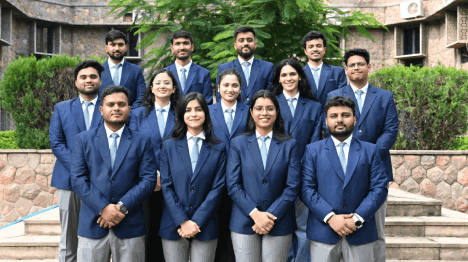(MBA in Development Management)
| PO 1 | Develop comprehensive perspective on achieving higher Human Development Index (HDI), pertinent Sustainable Development Goals (SDGs) and higher happiness index (HI) in the 21st century. |
| PO 2 | Acquire knowledge, competencies, analytical and creative skills for problem solving and innovating to attain higher HDI, SDGs and happiness index (HI). |
| PO 3 | Foster professionalism in CSOs, Organisations for development and not for profit, Framer producer organisations (FPOs), Micro and small businesses, Development missions of the government, CSR foundations, public systems and financial institutions. |
| PO 4 | Obtain willingness and competencies to work in challenging geographies/contexts as it requires resilience, perseverance, emotional, social intelligence, and courage of conviction. |



